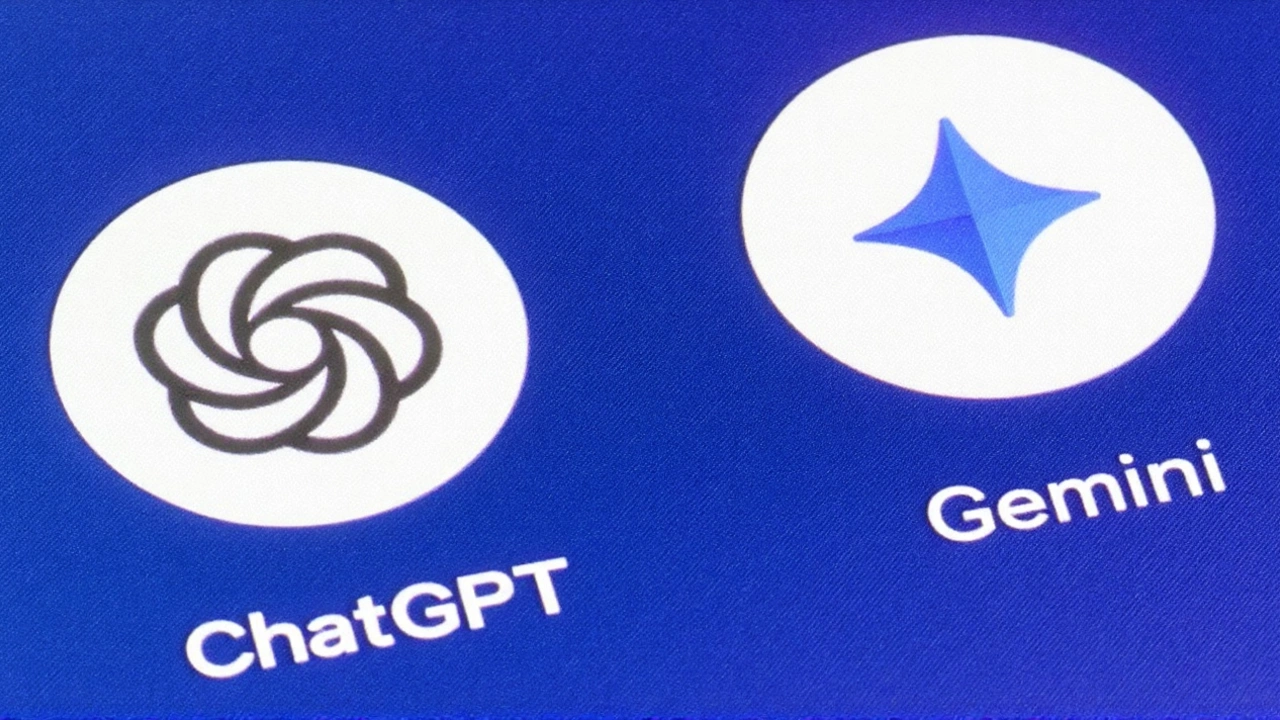A viral trend just flipped the AI leaderboard
For the first time, Google Gemini has jumped past ChatGPT to claim the No. 1 spot on the U.S. Apple App Store’s free chart. It wasn’t a slow climb. It was a surge, powered by a quirky viral wave called “Nano Banana” that turned a growing app into the day’s most downloaded AI assistant.
Only weeks ago, the gap looked huge. Statista’s March 2025 snapshot showed ChatGPT with 64.26 million downloads versus Gemini’s 13.92 million. That’s not a small deficit. But app store rankings measure daily momentum, not lifetime totals, and the “Nano Banana” burst delivered a flood of new installs that shifted the leaderboard in a hurry.
What is “Nano Banana,” exactly? It’s a playful prompt-driven trend inside Gemini that encouraged quick, shareable interactions—short bursts of content that are easy to copy, remix, and post. Think of it as a challenge format that travels fast on social feeds. As more users tried it and shared their results, downloads followed. The more it spread, the higher Gemini climbed.
Google says India is leading the movement. That tracks with how fast trends can scale there: massive audiences, hyperactive short‑video platforms, and creators who know how to turn a micro‑meme into a nationwide wave. Google even pushed out tips on how to spark the next viral trend, a sign the company sees user‑generated waves as a repeatable growth engine, not a one‑off.
Why did this jump the queue on the App Store? Rankings reward velocity—how many installs you get, how quickly you get them, and whether people stick around. Virality checks a lot of those boxes. When a trend hits, users don’t just download; they open, play, rate, and share. That activity feeds the algorithm. The effect compounds when the brand behind it can promote across its own surfaces, and Google has plenty of pipes to amplify a moment once it starts.
This also remixes a rivalry that has dominated the last two years. ChatGPT defined the category on mobile and built a loyal base fast. The name became shorthand for the entire tech. Gemini entered the fight later, tightened its mobile app, and blended AI chat with creative tools and search tie‑ins. The “Nano Banana” episode shows something simple but powerful: in consumer apps, the crowd can move the chart in days, not months.

Surge meets scrutiny: privacy, staying power, and what changes next
With any viral feature, privacy questions follow. Users feed these apps a lot—text, images, sometimes voice. When a trend asks you to create and share more, the risk is oversharing without thinking through what’s stored and how it’s used. Privacy researchers warn that novelty lowers our guard. The safer move is to assume everything you type or upload can be kept and analyzed unless you’ve turned off data saving.
Most AI apps, Gemini included, offer controls that limit how chats are stored or used to improve models. Those settings are worth checking before you go trend‑hunting. It’s also smart to keep sensitive info out of playful prompts—no addresses, no financial details, nothing you’d regret landing in a training dataset. Fun features are great. They’re not the place for private material.
There’s also the question of staying power. Viral bursts can spike downloads and still fade fast if the product doesn’t convert that attention into daily use. Google’s task now is retention: turning a meme into a habit. That usually means shipping useful features right behind the hype—faster answers, better creative tools, tighter integrations with the stuff people use every day. Expect Gemini to surface more lightweight, shareable formats while also nudging users toward deeper capabilities.
For OpenAI, this is a pressure test, not a crisis. ChatGPT still holds the larger install base and a strong subscriber pipeline through premium tiers. But momentum matters on mobile. If users are willing to switch for novelty, they’ll switch again for utility. That puts a spotlight on refresh cycles—who ships the next must‑try feature, who nails speed and accuracy, who keeps the experience simple.
The bigger market backdrop is getting noisier. On‑device AI is seeping into keyboards, cameras, and operating systems. That blurs the line between “the AI app” and “AI everywhere.” If the next wave of growth comes from native features on phones, third‑party apps have to compete on personality, speed, and community—exactly where a trend like “Nano Banana” can be a force multiplier.
India’s role here is more than a footnote. It’s become a launchpad for social formats that jump borders: short video challenges, micro‑memes, and remix culture that rewards fast iteration. When a format lands there, the ecosystem of creators, editors, and curators can spin it into thousands of variations in days. That density is rocket fuel for app store momentum.
So where does this go next? A few markers to watch: whether Gemini holds a top‑five slot after the initial pop; whether daily active users climb in step with downloads; and whether Google ties these playful formats to practical tools. If users can go from a meme to a meaningful task—summaries, planning, image creation—without friction, the app becomes sticky, not just trendy.
For anyone trying the trend, a quick safety checklist helps:
- Review data‑saving settings inside the app and disable model training on your chats if you prefer.
- Avoid sharing sensitive info in prompts, even inside “just for fun” features.
- Limit media permissions to what the feature truly needs and revoke them when you’re done.
- Clear chat history you don’t need to keep; treat it like email, not a scrapbook.
- Skim the app’s in‑app privacy summary. It’s faster than reading the whole policy and covers the basics.
Whatever you think of “Nano Banana” as a format, it proves a point: the AI app race is now a culture race too. The winners won’t just be the models with the best benchmarks. They’ll be the ones that move people—through utility on weekdays and trends on weekends—and convert those moments into a habit that lasts when the meme fades.

